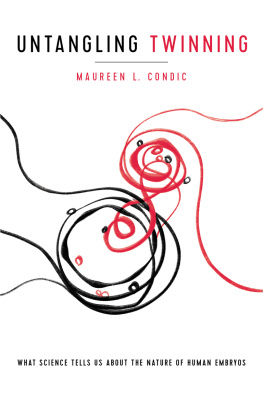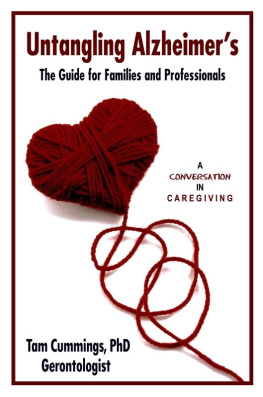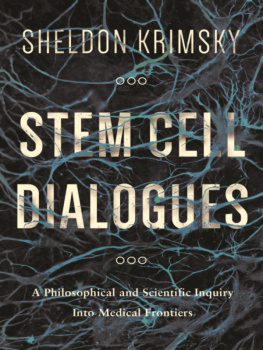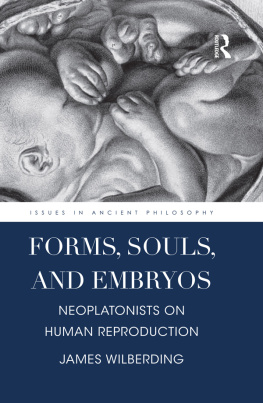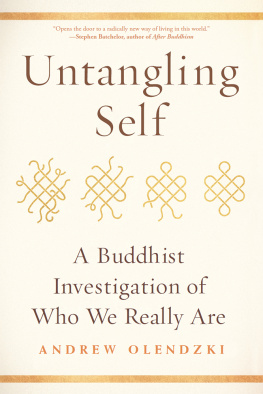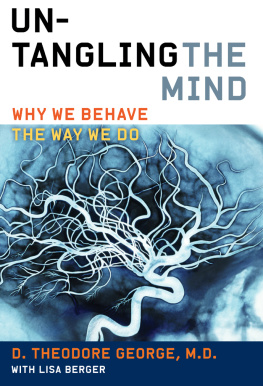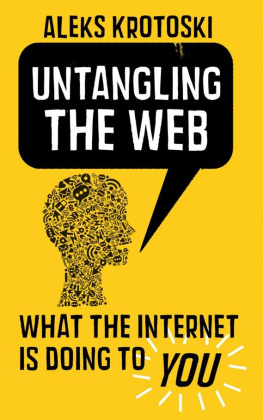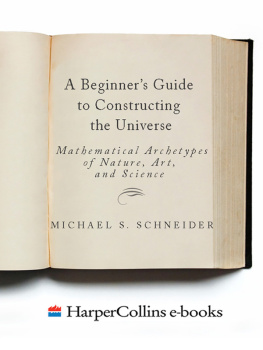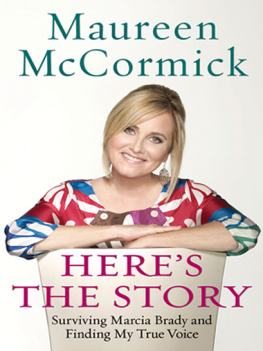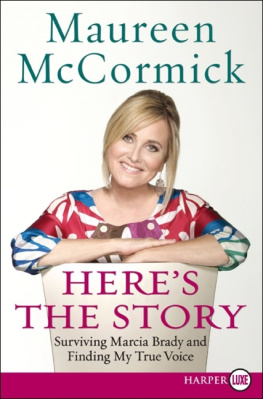Maureen L. Condic - Untangling Twinning: What Science Tells Us about the Nature of Human Embryos
Here you can read online Maureen L. Condic - Untangling Twinning: What Science Tells Us about the Nature of Human Embryos full text of the book (entire story) in english for free. Download pdf and epub, get meaning, cover and reviews about this ebook. year: 2020, publisher: University of Notre Dame Press, genre: Romance novel. Description of the work, (preface) as well as reviews are available. Best literature library LitArk.com created for fans of good reading and offers a wide selection of genres:
Romance novel
Science fiction
Adventure
Detective
Science
History
Home and family
Prose
Art
Politics
Computer
Non-fiction
Religion
Business
Children
Humor
Choose a favorite category and find really read worthwhile books. Enjoy immersion in the world of imagination, feel the emotions of the characters or learn something new for yourself, make an fascinating discovery.
- Book:Untangling Twinning: What Science Tells Us about the Nature of Human Embryos
- Author:
- Publisher:University of Notre Dame Press
- Genre:
- Year:2020
- Rating:3 / 5
- Favourites:Add to favourites
- Your mark:
- 60
- 1
- 2
- 3
- 4
- 5
Untangling Twinning: What Science Tells Us about the Nature of Human Embryos: summary, description and annotation
We offer to read an annotation, description, summary or preface (depends on what the author of the book "Untangling Twinning: What Science Tells Us about the Nature of Human Embryos" wrote himself). If you haven't found the necessary information about the book — write in the comments, we will try to find it.
Maureen L. Condic: author's other books
Who wrote Untangling Twinning: What Science Tells Us about the Nature of Human Embryos? Find out the surname, the name of the author of the book and a list of all author's works by series.
Untangling Twinning: What Science Tells Us about the Nature of Human Embryos — read online for free the complete book (whole text) full work
Below is the text of the book, divided by pages. System saving the place of the last page read, allows you to conveniently read the book "Untangling Twinning: What Science Tells Us about the Nature of Human Embryos" online for free, without having to search again every time where you left off. Put a bookmark, and you can go to the page where you finished reading at any time.
Font size:
Interval:
Bookmark:
UNTANGLING TWINNING
NOTRE DAME STUDIES IN MEDICAL ETHICS AND BIOETHICS
O. Carter Snead, series editor

The purpose of the Notre Dame Studies in Medical Ethics and Bioethics series, sponsored by the de Nicola Center for Ethics and Culture, is to publish works that explore the ethical, cultural, and public questions arising from advances in biomedical technology, the practice of medicine, and the biosciences.
UNTANGLING TWINNING

What Science Tells Us about the
Nature of Human Embryos
MAUREEN L. CONDIC
University of Notre Dame Press
Notre Dame, Indiana
University of Notre Dame Press
Notre Dame, Indiana 46556
undpress.nd.edu
Copyright 2020 by the University of Notre Dame
All Rights Reserved
Published in the United States of America
Library of Congress Cataloging-in-Publication Data
Names: Condic, Maureen, author.
Title: Untangling twinning : what science tells us about the nature of human embryos / Maureen L. Condic.
Other titles: Notre Dame studies in medical ethics and bioethics.
Description: Notre Dame, Indiana : University of Notre Dame Press, [2020] |
Series: Notre Dame studies in medical ethics and bioethics | Includes bibliographical references and index.
Identifiers: LCCN 2019054557 (print) | LCCN 2019054558 (ebook) |
ISBN 9780268107055 (hardback) | ISBN 9780268107086 (adobe pdf) |
ISBN 9780268107079 (epub)
Subjects: MESH: Twins | Beginning of Human Lifeethics | Embryonic
Development | Bioethical Issues | Chimerismembryology
Classification: LCC RG133.5 (print) | LCC RG133.5 (ebook) | NLM WQ 235 | DDC 176dc23
LC record available at https://lccn.loc.gov/2019054557
LC ebook record available at https://lccn.loc.gov/2019054558
This e-Book was converted from the original source file by a third-party vendor. Readers who notice any formatting, textual, or readability issues are encouraged to contact the publisher at
This book is dedicated to Joseph Yost, who has supported me
with critical scientific discussion, tireless devotion,
and a never-failing Irish sense of humor.
CONTENTS
Introduction: Human Embryos and
Human Individuals
Philosophical Concerns Raised by
Human Chimerism
ILLUSTRATIONS
TABLES
ACKNOWLEDGMENTS
Portions of this work or the ideas expressed herein have been adapted from previously published texts, including but not limited to the following:
Condic, M. L. Life: Defining the Beginning by the End. First Things 133 (May 2003): 5054.
Condic, M. L., and S. B. Condic. The Appropriate Limits of Science in the Formation of Public Policy. Notre Dame Journal of Law, Ethics and Public Policy 17, no. 1 (2003): 15779.
Condic, M. L., and S. B. Condic. Defining Organisms by Organization. National Catholic Bioethics Quarterly 5, no. 2 (2005): 33153.
Condic, M. L. When Does Human Life Begin? A Scientific Perspective. Westchester Institute White Paper (Westchester Institute for Ethics and the Human Person) 1, no. 1 (October 2008): 118.
Condic, M. L. Alternative Sources of Pluripotent Stem Cells: Altered Nuclear Transfer. Cell Proliferation 41, suppl. 1 (December 2008): 719.
Condic, M. L. Preimplantation Stages of Human Development: The Biological and Moral Status of Early Embryos. In Is This Cell a Human Being? Exploring the Status of Embryos, Stem Cells and Human-Animal Hybrids, edited by Antoine Suarez and Joachim Huarte, 2543. New York: Springer, 2011.
Condic, M. L. A Biological Definition of the Human Embryo. In Persons, Moral Worth, and Embryos: A Critical Analysis of Pro-Choice Arguments, edited by Stephen Napier, 21135. New York: Springer, 2011.
Condic, M. L. The Science and Politics of Cloning: What the News Was All About. On Point, Charlotte Lozier Institute, May 1, 2013. https://s27589.pcdn.co/wp-content/uploads/2013/05/On-Point-Science-and-Politics-of-Cloning-Condic-May-2013.pdf.
Condic, M. L. Human Embryology: Science Politics versus Science Facts. Quaestiones Disputatae 5, no. 2 (2014): 4760.
Condic, M. L., and K. Flannery, A Contemporary Aristotelian Embryology. Nova and Vetera (English Edition) 12, no. 2 (2014): 495508.
Condic, M. L. When Does Human Life Begin? The Scientific Evidence and Terminology Revisited. University of St. Thomas Journal of Law and Public Policy 8, no. 1 (2014): 4481.
Condic, M. L. Totipotency: What It Is and What It Is Not. Stem Cells and Development 23, no. 8 (April 2014): 796812.
Condic, M. L. Determination of Death: A Scientific Perspective on Biological Integration. Journal of Medicine and Philosophy 41, no. 3 (June 2016): 25778.
Condic, M. L. The Role of Maternal-Effect Genes in Mammalian Development. Stem Cell Reviews and Reports 12, no. 3 (June 2016): 27684.
Condic, M. L. Embryos and Integration. In Life and Learning XXVI: Proceedings of the Twenty-Sixth University Faculty for Life Conference, edited by Joseph W. Koterski, 295323. Bronx: Fordham University Press, 2017.
Condic, M. L. Virtues beyond a Utilitarian Approach in Biomedical Research. In Proceedings of the XXII PAV General Assembly, 99113. Rome: Libreria Editrice Vaticana, 2017.
Condic, M. L., and S. B. Condic. Human Embryos, Human Beings: A Scientific and Philosophical Approach. Washington, DC: Catholic University of America Press, 2018.
NOTE ON THE PRESENTATION
OF CITATIONS IN THE TEXT

Some endnotes expand upon points that are stated briefly in the main text or refer readers to other sections of the book that discuss the topic in greater detail. You can identify endnotes that contain additional discussion, clarification, or an internal reference by the brackets flanking their superscripted callout numbers in the text.
INTRODUCTION
Human Embryos and Human Individuals
For the vast majority of human history, prenatal development was a deep mystery that could not be penetrated by direct observation. While scientists, philosophers, and bioethIcists have considered the origins of human life for a long time (for example, Aristotle discusses embryonic development extensively in De generatione animalium), the conclusions they have drawn were often based on very little evidence. Consequently, appealing to historical experts yields a plethora of opinions, many of which have very little to do with the scientific facts.
In modern times, with the advent of chemical contraception, in vitro fertilization (IVF), and human embryo research, determining precisely when human life begins has become a matter of considerable importance. Each of these practices raises significant questions regarding the nature of the entity produced by sperm-egg fusion and societys obligation to that entity. The ability to manipulate the earliest stages of human life in the laboratory has brought into sharp focus a number of questions that are vital to our understanding of human beings and human rights, including the following: When does human life begin? Is a human embryo a human individual? What is the basis of human value?
There are no universally agreed-upon answers to these questions. Life is clearly a continuum, with living cells giving rise to new types of cells and, ultimately, to mature individuals. This fact has led many to conclude that it is impossible to determine when human life begins and to question whether human embryos have greater value than human cells. Yet this view raises a serious ethical dilemma: while no one objects to the destruction of ordinary human cells for biomedical research, the use of human beings for such purposes is universally condemned. To resolve this dilemma, clear criteria must be established to determine when living human cells give rise to a new individual human being.
Font size:
Interval:
Bookmark:
Similar books «Untangling Twinning: What Science Tells Us about the Nature of Human Embryos»
Look at similar books to Untangling Twinning: What Science Tells Us about the Nature of Human Embryos. We have selected literature similar in name and meaning in the hope of providing readers with more options to find new, interesting, not yet read works.
Discussion, reviews of the book Untangling Twinning: What Science Tells Us about the Nature of Human Embryos and just readers' own opinions. Leave your comments, write what you think about the work, its meaning or the main characters. Specify what exactly you liked and what you didn't like, and why you think so.

